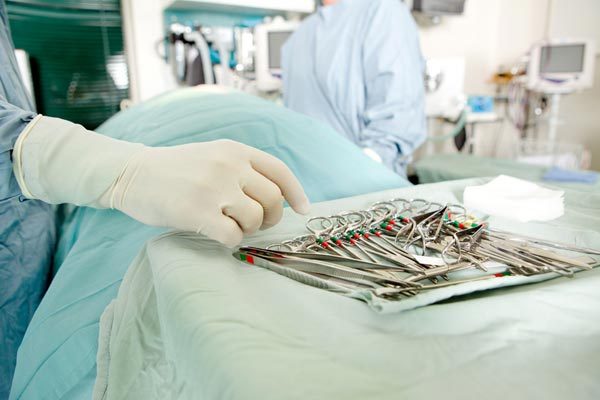Illegal Silicone Butt Injections Cause Host of Health Problems

In the hopes of achieving fuller buttocks, some women opt to get illegal injections of silicone that can cause a host of health complications. Problems range from tissue hardening and pain to infections, breathing problems and even life-threatening blood clots.
It's not clear whether the number of people getting these illegal injections is on the rise, but some doctors say they've seen an increase in patients who've had the procedure.
Just this month, a 34-year-old woman from Maryland died after receiving the illegal injections in New York, according to news reports.
"I am seeing an increase in the number of people who've had it done, who are coming to see me" said Dr. Tansar Mir, a plastic surgeon at Lenox Hill Hospital, who is treating Ouk. Mir estimated that he's seen several dozen patients with silicon buttocks injections in the last two and a half years. "There's an increase in awareness for sure" about the procedure, Mir said.
But these injections are dangerous; they are not approved by the Food and Drug Administration, and most are done by nonlicensed practitioners, Mir said. [Video: Butt Enhancement Is Dangerous (Caution: graphic medical images)]
Patients often don't know exactly what substance is being injected into them, Mir said. It's usually non-medical-grade silicone, meaning silicone that could be picked up at the hardware store and that is not sterile.
But there have been some reports of women who were injected with tire sealant, mineral oil, baby oil and even cement, Mir said. In 2011, an unlicensed practitioner was arrested, and later sent to jail, for reportedly injecting women with cement and tire sealant, according to ABC News.
Sign up for the Live Science daily newsletter now
Get the world’s most fascinating discoveries delivered straight to your inbox.
Even when actual silicone is used, it can cause problems, Mir said. Injected silicone can stay within the fat tissue, but it can also sometimes get into the veins and spread to other parts of the body, causing blood clots, he said. If the blood supply to an artery becomes blocked, it can lead to limb loss, Mir said.
Patients can also experience infections because the silicone injections compromise their immune systems.
"These foreign materials are not meant to be freely floating in the body," Mir said. "The patient's immune system becomes comprised because the majority of the immune cells are being occupied fighting the foreign material in the buttocks," Mir said.
Ouk experienced a blockage in her lungs, and also infections, Mir said.
Not everyone experiences life-threatening symptoms from the injections. More common symptoms are pain, burning, itching and swelling in the injection area, or skin changes, Mir said. Patients can experience skin hardening because the pressure and scar tissue in the area (caused by the immune system's response) impair the blood supply to the skin. As a result of the loss of blood supply, the skin tissue can start to die, Mir said.
Even if women don't experience health problems right away, they may have problems later. Mir said he's treated women who had symptoms 15 to 20 years after their injections.
Very few U.S. plastic surgeons will treat patients who've had illegal silicone buttocks injections, Mir said. Many doctors are not familiar with the disease physiology, or they don't want to take on a patient who has complications from something done by another practitioner, Mir said. In addition, "many [doctors] chastise these patients for allowing an unlicensed practitioner to inject and unknown substance into their bodies," he said.
Some doctors treat these patients with liposuction and a laser procedure, but Mir said that in his opinion, this treatment should not be done, because it causes the silicone to spread to other areas. Instead, what is needed is surgical excision of the silicone, Mir said.
Mir and his colleagues treated Ouk by cutting out the liquid silicone and attaching the woman to a machine to drain the remaining foreign substance over several days. It's too soon to say whether Ouk's symptoms will go away, but she is already feeling better, Mir said.
Follow Rachael Rettner @Rachael Rettner. Follow Live Science @livescience, Facebook & Google+. Original article on Live Science.

Rachael is a Live Science contributor, and was a former channel editor and senior writer for Live Science between 2010 and 2022. She has a master's degree in journalism from New York University's Science, Health and Environmental Reporting Program. She also holds a B.S. in molecular biology and an M.S. in biology from the University of California, San Diego. Her work has appeared in Scienceline, The Washington Post and Scientific American.









